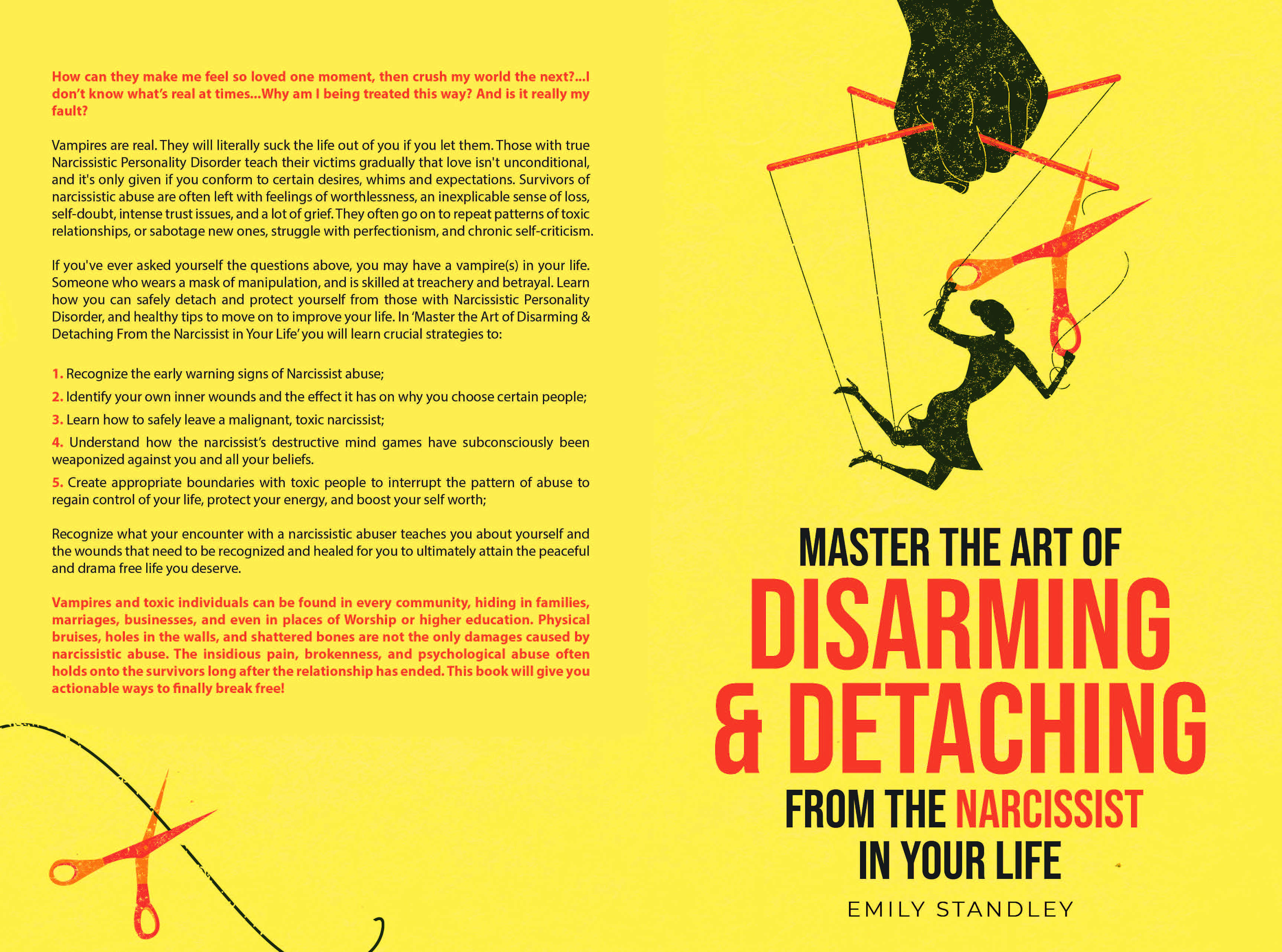The 5 Types of Narcissists – How to Spot and Decode Their Tactics
If you’ve ever faced narcissistic abuse—whether from a family member, partner, friend, or even a boss—you know just how emotionally draining and confusing it can be. Narcissism exists on a spectrum, making it tricky to identify the different types and their impact on your life. In this post, we break down the five distinct types of narcissism, the telltale signs to watch for, and how to recognize the subtle (and not-so-subtle) differences between them. Knowledge is power—let’s dive in.

Disclaimer: This post was created for informative purposes only. I am not a mental health professional, and this information should not be used for diagnosis or treatment. If you are concerned about yourself or someone you know, please seek professional help.
Narcissistic Traits and Types
There are multiple different expressions or types of narcissism, each with their own distinct – and toxic – personality traits.
A narcissist can be either a man or a woman.
There are generally considered to be 5 main types of narcissism.
These include the overt (grandiose), covert (vulnerable), malignant, antagonist and communal.
Is it Really NPD?
In order for a person to qualify for an official diagnosis of NPD, one must exhibit at least five of these traits, according to the Diagnostic and Statistical Manual of Mental Disorders (DSM–5) they are as follows:
- Has a grandiose sense of self-importance (e.g., exaggerates achievements, expects to be recognized as superior without actually completing the achievements)
- Is preoccupied with fantasies of success, power, brilliance, beauty or perfect love
- Believes that they are “special” and can only be understood by or should only associate with other special people (or institutions)
- Requires excessive admiration
- Has a sense of entitlement, such as an unreasonable expectation of favorable treatment or compliance with his or her expectations)
- Is exploitative and takes advantage of others to achieve their own ends
- Lacks empathy and is unwilling to identify with the needs of others
- Is often envious of others or believes that others are envious of them
- Shows arrogant, haughty behaviors and attitudes
Also read>>> 12 Signs to Recognize an Aging Narcissist and Ways to Cope
Here are 5 different types of narcissists:
Overt (Grandiose) Narcissist:
This is the type of narcissist that most people think of when they hear the word "narcissist." They are often described as arrogant, haughty, self-absorbed, and boastful.
They have an inflated sense of their own importance and believe that they are superior to others. They crave admiration and attention, and they often exploit others to get what they want.
Overt narcissists, unlike their covert counterparts, tend to be more direct and blatant in their expressions of self-importance, lack of empathy, and need for admiration. Here are some examples of what they might say, categorized by their desired outcome:
Examples:
Seeks Admiration:
- "Everyone says I'm the best at what I do."
- "Have you heard about my latest achievement? It's truly remarkable."
- "No one else could have pulled this off, only I have the talent and skills."
- "Look at me, aren't I amazing?" (accompanied by boasting or attention-seeking behavior)
Puts Others Down:
- "You wouldn't understand, you're not on my level."
- "Your work is mediocre at best, let me show you how it's done."
- "They're just jealous of my success, that's why they criticize me."
- "Don't be ridiculous, your opinion is irrelevant compared to mine."
Shifts Blame and Responsibility:
- "It's not my fault things went wrong, you did something wrong first."
- "If you had listened to me, this wouldn't have happened."
- "You're overreacting, I was just kidding/joking/being honest."
- "Why are you making such a big deal out of this? It's nothing."
Controls and Manipulates:
- "You need me, you wouldn't know what to do without me."
- "Do it my way, it's the only way it will work."
- "If you truly love me, you'll do what I ask."
- "Don't question me, just obey."
Grandiose Fantasies and Entitlement:
- "I deserve the best treatment, always."
- "I'm destined for greatness, everyone recognizes it."
- "Only I have the solutions to everyone's problems."
- "Rules don't apply to me, I'm an exception."
Covert (Vulnerable) Narcissist:
Covert narcissists are more subtle than their overt counterparts. They may appear shy or insecure, but they secretly have a grandiose sense of self-importance.
They often feel envious of others and may try to manipulate or sabotage them. They may also use triangulation (involve a third party) or play the victim, making others feel sorry for them so they can get their way.
Examples:
Covert narcissists, unlike their overt counterparts, use subtler tactics to manipulate and gain emotional control. Here are some examples of what they might say, categorized by theme:
Plays the Victim:
- "Everyone takes advantage of me, I'm just too kind."
- "Why do bad things always happen to me?"
- "You wouldn't understand what I'm going through."
- "I just want to help, but no one appreciates me."
Subtle Bragging:
- "It's nothing special, but..." (followed by an accomplishment)
- "I don't like to brag, but..." (followed by self-praise)
- "They told me I was the best, but I'm just humble."
- "Of course I could do that, but I wouldn't want to show off."
Guilt-Trips and Manipulation:
- "If you really loved me, you would..." (followed by a demand)
- "Do you even care about how I feel?"
- "You're being so selfish, thinking only about yourself."
- "Remember that time I did you a favor? Now it's your turn."
Feigns Humility:
- "I'm not smart enough for that." (fishing for compliments)
- "I'm so lucky to have someone like you in my life."
- "I don't deserve your kindness." (creating obligation)
- "I'm the problem, it's always my fault." (shifting blame)
Passive-Aggressive Behavior:
- "Oh, I didn't know you meant it that way." (playing dumb)
- "I forgot, sorry." (creating inconvenience)
- "Sure, I'll do it, but..." (followed by complaints or negativity)
- "You're overreacting, I was just joking." (invalidating emotions)
Communal Narcissist:
Communal narcissists present themselves as selfless and caring, but their underlying motivation is to gain admiration and recognition.
They claim and believe that they have a strong moral code or care about others, but don't get that their actions are in direct opposition to their stated beliefs.
They may be involved in charitable work or other activities that make them look good, but they are often more concerned with how they appear to others than with actually helping people.
Examples:
" How could you say such a thing when I do so much for the community” or “All I’ve ever done is kind to you, so why would you question me like that?” or “I understand that villainizing me is easier for you, but once you reach my level of spirituality, you won’t feel so angry anymore.”
Antagonistic Narcissist:
Antagonistic narcissists are aggressive and hostile. They enjoy provoking others and getting into arguments. They may be cruel and sadistic, and they often take pleasure in hurting others.
These are people who can be very cold, methodical and invalidating of others who do not operate in their rigid structure of rules and order and have little empathy for those who may be struggling and will often blame a person who is going through a bad experience.
Examples :
"You're lucky I put up with you, nobody else would." (Creating emotional dependence)
"You're imagining things, I never said that." (Gaslighting and manipulating reality)
"You're making me look bad in front of everyone." (Guilt-tripping and controlling behavior)
Malignant Narcissist:
Malignant narcissists are the most dangerous type of narcissist. They are characterized by a combination of traits from other types of narcissism, as well as a complete lack of empathy and zero remorse.
They can be manipulative, abusive, and even physically violent. Serial killers Ted Bundy and Jeffrey Dahmer were both diagnosed with malignant NPD.
Examples:
- Why can't you do anything right the way I asked you to.
- You ALWAYS do the wrong thing.
- You never finish what you start.
- This is all your fault.
- I asked you a question.
- It's all in your mind.
- You need to work on yourself.
- Why are you with me?
- Your opinions and feelings are not important to me
- If you leave me, you'll regret it
- You're disrespecting me.
- You think I'm stupid.
- You're not doing that right.
- My way or the highway.
- I never said that. You're imagining things again.
Conclusion
It is important to note that not everyone who exhibits some narcissistic traits is a narcissist. Narcissistic Personality Disorder (NPD) is a clinical diagnosis that can only be made by a mental health professional.
However, understanding the different types of narcissism can help you to identify and avoid people who may be harmful to you.
If you are concerned that you or someone you know may be a narcissist, it is important to seek professional help. A therapist can help you to understand the condition and develop healthy coping mechanisms.
Next read>>> 10 Things All Narcissists Have in Common and How to Protect Your Energy (msn.com)
Follow me for more selfcare, wellness tips, trends and awesome ways to thrive in life!
Gain some insight into ways to protect your energy if you're dealing with a narcissist.

Post a Comment